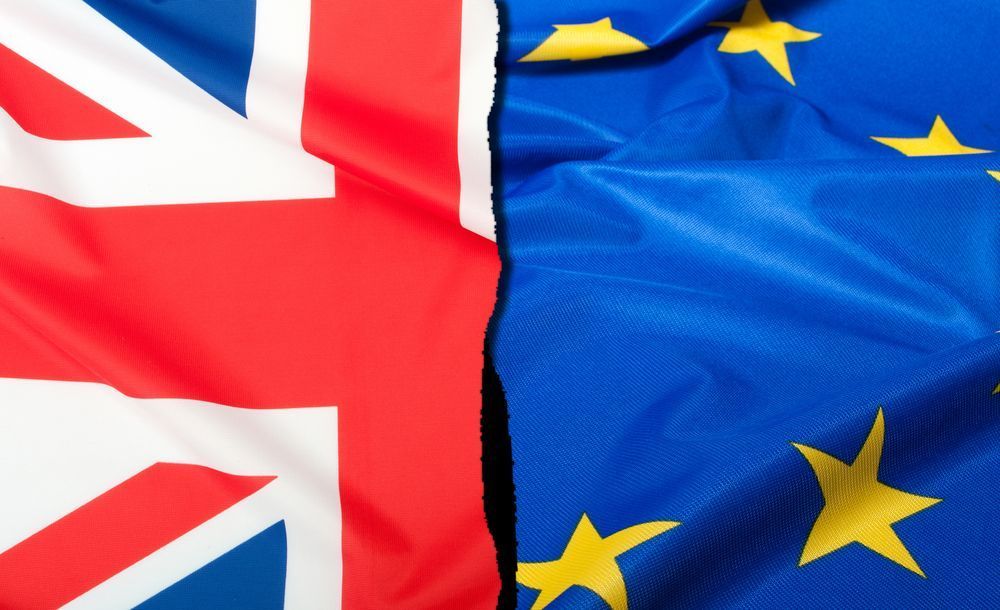Brexit: What if There is No Deal?
September 7, 2018
By: Andreia Ghimis
As the target signature date of the UK’s Withdrawal Agreement approaches, our clients’ anxiety regarding Brexit is increasing by the day. This is to be expected, given the general negative mood that surrounds the topic. While negotiations are relatively transparent at a high political level, plenty of technical and purely practical questions still remain unanswered. Furthermore, despite some potentially reassuring statements that anticipate an orderly withdrawal of the UK from the EU, a Communication from the European Commission (July 2018) warning stakeholders to prepare for a ‘no deal scenario’ generated significant concerns in the business community. It has thus become more and more important, both for citizens and their employers, to prepare for a ‘no-deal’, both from an immigration and a social security perspective.
But what does the ‘no-deal scenario’ mean and what are its implications?
There is a great deal of confusion about the meaning and consequences of the ‘no-deal scenario’.
‘No-deal’ means that the EU and the UK do not manage to find a timely consensus on the Withdrawal Agreement (a draft of this agreement was published in March 2018). But when will we know? The period that keeps being mentioned is October 2018. We could indeed find out at the European Summit (18-19 October 2018) if the no-deal alarm has to be triggered or not. This is because several items of the Withdrawal Agreement must still be approved. The most important is the situation at the Irish border.
But the October deadline is not legally binding. So, we may still witness a prolongation of the talks on the UK’s withdrawal beyond that date. However, the delay cannot go on for too long: after signature, the Withdrawal Agreement will have to be concluded in the EU (consensus of the European Parliament and qualified majority vote in the Council) and ratified in the UK (vote in the UK Parliament). All of this can happen in parallel, but can take up to three or four months.
The expected date of entry into force of the Withdrawal Agreement is 29 March 2019. So, unless the Brexit day is also postponed (which is legally possible, but politically undesirable on both sides), it is fair to say that somewhere between mid-October and mid-December 2018, we will know whether there will be an orderly or a ‘no-deal’ withdrawal of the UK from the EU.
Are EU countries preparing for this?
So far, we have not seen any visible preparations for this scenario in any EU country. Fragomen has been meeting with several EU and national stakeholders who have explained that all efforts were being concentrated towards securing a deal, because this is the desirable outcome for both parties. Yet, several exercises have been conducted, at least at EU level, to identify the legal gaps that would occur post-transition (in case there is one). These exercises are relevant in case of a ‘no-deal’, because in March 2019 we would immediately fall back on the existing EU and national legislation for third country nationals and be confronted with several legal vacuums.
Given the chaos a ‘no-deal’ withdrawal would create, it is highly likely that internal meetings are happening in the various capitals to prepare contingency plans, find solutions for the potential legal vacuums and a reasonable transition towards the new regime. The European Commission’s July Communication actually encouraged EU Member States to do so.
What does this mean for UK nationals residing in EU countries?
The stakes in a ‘no-deal scenario’ are high. If there is no withdrawal deal, there will be no transition period as prescribed in the draft Withdrawal Agreement (29 March 2019 – 31 December 2020). UK nationals will lose their EU citizenship, and suddenly become third country nationals. If there is no coordinated approach at EU level in this scenario, each EU country will decide how to protect the rights of UK nationals living on their territory.
It is likely that EU countries will look at how the rights of their citizens will be protected in the UK, and will try to duplicate that regime for UK nationals, granting a similar level of protection. A sort of a transition period might still be implemented at national level, to make sure UK nationals have the time to regularize their stay (be it by applying for third country nationals’ work/residence permits or for another type of permit specific to UK nationals post-Brexit). Given the different administrative traditions of EU countries, this may unfortunately lead to variable processes, documents, rights and regimes for UK nationals.
EU countries might also look at whether EU nationals residing in the UK will be affected by Brexit and try to compensate, where possible, the loss of potentially acquired rights (for instance, social security rights).
What is Fragomen doing?
Fragomen is meeting with Brexit stakeholders of different EU Member States and other decision makers to raise the most frequent questions received from our clients. We advise them on possible solutions to protect citizens’ rights, and constantly plead for more transparency, legal certainty and a coordinated EU approach in all scenarios (deal or no deal). We use the most up to date information to guide our clients and help them mitigate the negative consequences engendered by Brexit.
Clients (individuals and employers) can reach out to us if they want to know what actions they can take now, how to communicate with their employees, and what to expect from the different withdrawal scenarios.
For more information please contact us at [email protected].














